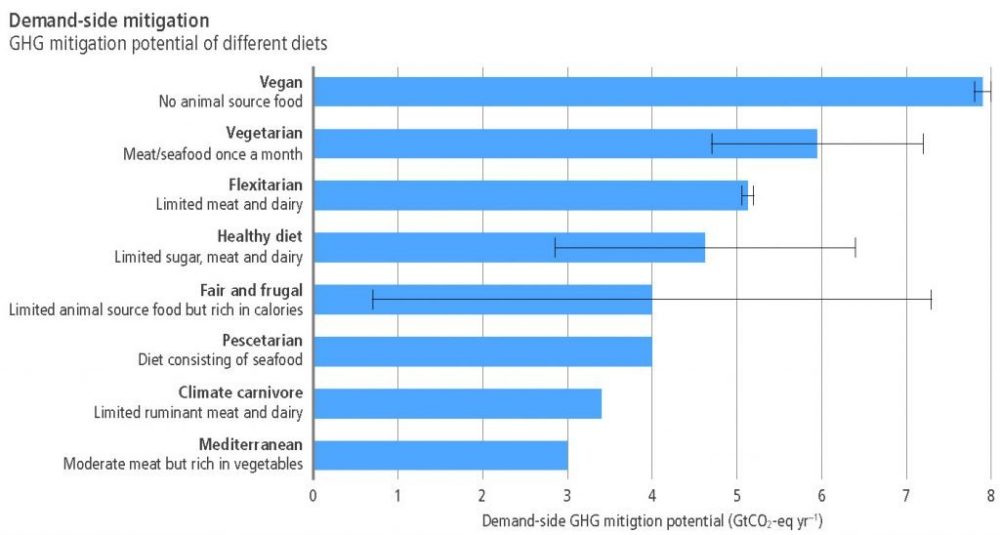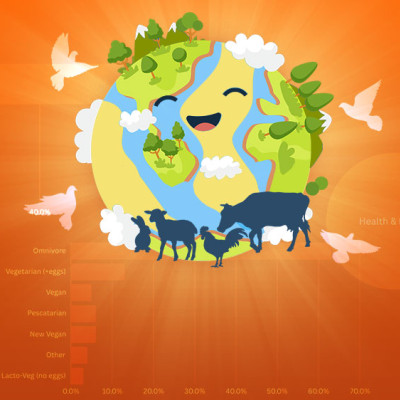Climate Code Red for Humanity – What Can We Do?
Published 11 August 2021
According to the most comprehensive assessment of climate change by the world's highly regarded group on climate science, the Intergovernmental Panel on Climate Change (IPCC), “Human influence has warmed the climate at a rate that is unprecedented in at least the last 2000 years.”

The IPCC’s sixth assessment report, titled ‘Climate Change 2021: the Physical Science Basis‘, warns of the imminent danger our planet and all co-inhabitants are in due to the rapidly warming global surface temperature.
The UN Secretary General, António Guterres has called the report a ‘code red for humanity‘ – we are already at 1.2°C and are extremely close to reaching the internationally agreed threshold of 1.5°C.
In the IPCC’s summary for policymakers the document highlights that, “Human-induced climate change is already affecting many weather and climate extremes in every region across the globe.”
- Virtually all heatwaves and heavy rainfall have become more intense and frequent since the 1950s. (Recent heatwaves in North America)
- Droughts have increased in frequency and severity. (Drought crisis in Africa)
- Fire seasons are projected to last longer with fires becoming more frequent and relentless. (Devastating wildfires in Greece and California)
- Flooding events are expected to become more numerous and intense. (Europe’s deadly floods)
- Sea levels are rising at an increasing rate. Since 1900 the global mean sea level has climbed faster than any other prior century in the last 3000 years. (Pacific island nations could be lost)
In particular, methane emissions have drastically increased. In 2019, they were at the highest levels they have ever been in the past 800,000 years! Methane is a potent short-lived greenhouse gas (GHG) that lasts in the atmosphere for about 12 years. Compared to CO2, methane has a global warming potential of 86 times that of CO2. The greatest source of atmospheric methane is animal agriculture.
Governments worldwide have been acting too slowly to reduce GHG emissions to achieve net zero emissions globally by 2050 as per the Paris Agreement.
 Young climate activists, like Greta Thunberg and Genesis Butler (both pictured), fully understand the urgency our planet is in and have been desperately drawing attention to the matter for governments to do more – with Greta recently pointing out the hypocrisy of world leaders at the G7 Climate Summit as they ate steak and lobster while pledging to reduce GHG emissions.
Young climate activists, like Greta Thunberg and Genesis Butler (both pictured), fully understand the urgency our planet is in and have been desperately drawing attention to the matter for governments to do more – with Greta recently pointing out the hypocrisy of world leaders at the G7 Climate Summit as they ate steak and lobster while pledging to reduce GHG emissions.
The IPCC’s special report ‘Climate Change and Land‘ released in 2019 details that our land use is a major source of greenhouse gases through deforestation and land degradation, mainly from agricultural activities. For instance, 70% of the Amazon Rainforest in Brazil has been destroyed for cattle ranching.
One of the solutions indicated in the report is shifting to a plant-based diet. Why? Because it means far less methane emissions, and land formerly used for animal agriculture can draw down carbon dioxide through sequestration.
In Chapter 5, a thorough examination of various existing studies showed that a vegan diet had the greatest potential to drastically reduce greenhouse gas emissions by 2050 compared to other diets.

For years, world leaders have been making promises and pledges to slash emissions, yet we are now facing a climate code red. It seems waiting for governments to act for the greater good and save humanity from climate catastrophe is a fanciful notion.
So, what can we do to save ourselves and the planet from imminent climate devastation? We have the power to make simple changes in our lives through the food we eat, by consuming a plant-based diet. By doing so we can rapidly decrease emissions and avoid any further warming of the planet.
Recent News
-

Dogs Thrive on Vegan Diets, Demonstrates the Most Comprehensive Study So Far
The longest, most comprehensive peer-reviewed study so far has demonstrated that dogs fed nutritionally-sound vegan diets maintain health outcomes as well as dogs fed meat.
-

Vegan YouTube Channels – Our Top Picks
Vegan Easy’s YouTube channel recommendations to help you on your vegan journey.
-

Pamela Anderson’s New Vegan Cookbook: A Culinary Journey of Love and Compassion
Pamela Anderson, the iconic Hollywood actress and passionate animal rights advocate, is set to captivate the culinary world with her upcoming vegan cookbook titled "I Love You: Recipes from the Heart."
-

January 2024 Vegan Easy Challenge Recap
People from around the world began their 2024 with a peaceful start by taking the 30-day Vegan Easy Challenge.
-

Discover the Culinary Delights of Byron Bay’s Newest Plant-Based Cooking School
Learn the sublime art of plant-based cuisine at Katie White's new cooking school in Byron Bay
-

Beyond Romance: Encouraging Vegan Themes and Animal Protection in the Growing World of K-Dramas
The global popularity of K-dramas and growing interest in veganism present a unique opportunity to foster positive change
Leave a Comment